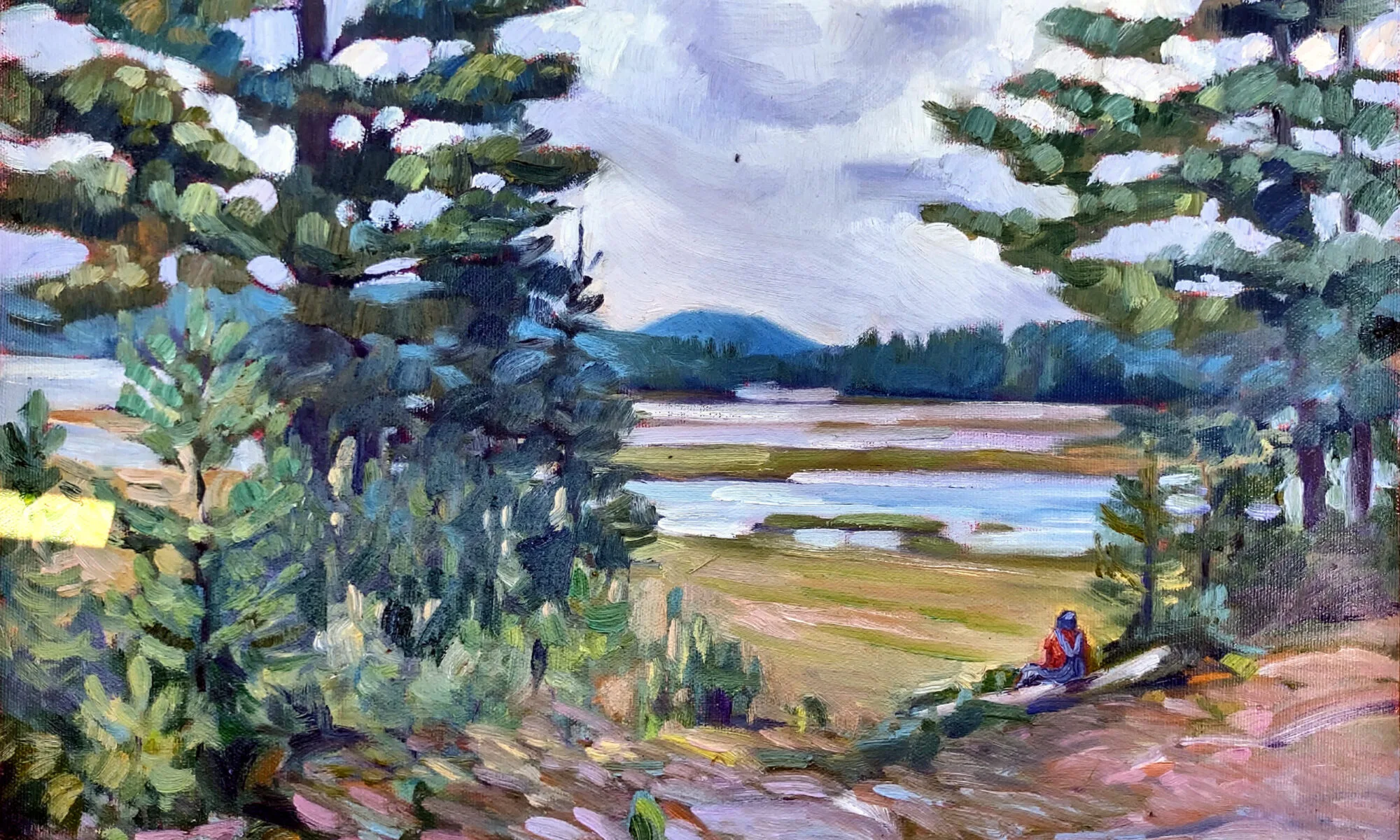Hard work has to be balanced by leisure, delay by activity. There’s a season for everything.
 |
| Tilt-a-whirl, by Carol L. Douglas |
A reader sent me this reviewof On Doing Nothing: Finding Inspiration in Idleness, by author and illustrator Roman Muradov. I found the review so stressful that I think reading the book is in order. Of course, I don’t have the time right now, but I’ll get to it.
This came on the heels of a conversation with a former workshop student, a woman who is in some ways my doppleganger. She works incredibly hard, and feels both guilty and bored if she sits still for long. She wanders around in shapeless old clothes, because it would be wrong to spend her resources on herself. Right now, she’s in a slough of exhaustion. I can relate.
 |
| More than they bargained for, by Carol L. Douglas |
I pointed out the story of Mary and Martha from the gospel of Luke. Jesus was visiting, and Martha was overwhelmed by the preparations that had to be made. She asked Jesus, “Lord, don’t you care that my sister has left me to do the work by myself? Tell her to help me!”
“Martha, Martha,” the Lord answered, “you are worried and upset about many things, but only one thing is needed. Mary has chosen what is better, and it will not be taken away from her.”
Of course, Martha is exactly how we both roll. Periodically, I find myself having taken on so many responsibilities that there’s no room for reflection. I’m tired, hurting, and cranky. That’s when I know it’s time to shed something and try to enjoy the space I’m in.
Why do I work so hard? I had years of delay in my art career—years when I needed to work elsewhere to earn a living, when I was raising my kids, had elderly parents, and was sick with two different cancers. It’s my season to work hard, but I’m still fine-tuning exactly how to do that without killing myself. My son-in-law calls me a “binge worker.” That needs fixing.
 |
| Headlights, by Carol L. Douglas |
Josef Pieper’s Leisure, the Basis of Culture argues that culture is born of contemplation, and contemplation requires time spent sitting around. Of course, I read this book in high school, when I had the energy to eagerly absorb new ideas. I remember my father telling me that he no longer read for pleasure. “I don’t have time,” he lamented. Of course, what he really meant was that he didn’t have the necessary energy and peace. Thinking requires a refreshed mind.
At any rate, back to Pieper. He got his ideas of leisure from Aristotle, who said “We work in order to be at leisure.”
“For the Greeks, ‘not-leisure’ was the word for the world of everyday work; and not only to indicate its ‘hustle and bustle,’ but the work itself,” wrote Pieper. He described compulsive work as “the hard quality of not-being-able-to-receive; a stoniness of heart, that will not brook any resistance…”
 |
| Beach Haven, by Carol L. Douglas |
Joseph Pieper was a German Catholic philosopher. He said he would have devoted himself entirely to social sciences had the Nazis had not come into power. From 1934 on, it was impossible for a Christian to speak in public about social issues. That gave him an enforced period (including a spell in the army) to reassess his priorities and develop his great thesis. It wasn’t until middle age that he was able to take a position at a German university.
All of which comes full circle to the importance of delay, interruption, and periods of inactivity as celebrated in Muradov’s book. Had Pieper been able to take a university chair right after completing his studies, he never would have written Leisure, the Basis of Culture. For those of us whose art careers have been frequently interrupted by life, that’s an important lesson.
Next up, a watercolor workshop aboard American Eagle, June 10-14, and my annual Sea & Sky workshop at Acadia National Park, August 5-10. Email me if you have any questions.
